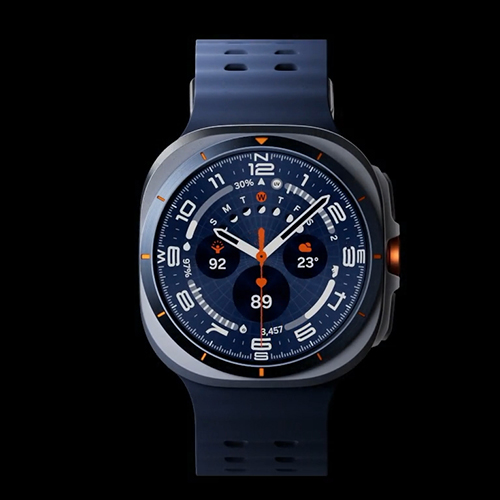
Exploring Mobile Screen Protectors: Types and Functions
In today's digital age, our mobile devices have become indispensable, and protecting their delicate screens is a priority for many users. Mobile screen protectors offer a practical solution to shield your smartphone or tablet from scratches, impacts, and prying eyes. This article explores the various types of mobile screen protectors available in the market, helping you make an informed choice to safeguard your device.
What Types of Mobile Screen Protectors Are Available?
When it comes to safeguarding your mobile device's screen, there are several types of screen protectors to choose from. Each type offers distinct benefits and protection levels. Let's explore the most common types:
1. Tempered Glass Screen Protector: Sturdy and Clear
Tempered glass screen protectors are the go-to choice for many users due to their robustness and clarity. Crafted from toughened glass, these protectors provide excellent resistance against scratches and minor impacts. They maintain touch sensitivity and offer crystal-clear visibility, preserving the original screen's vibrant colours.
2. Plastic or PET Film Screen Protector: Slim and Versatile
Plastic or PET film screen protectors are thinner and more flexible than tempered glass variants. While they provide basic scratch protection, they are less effective against heavy impacts. PET film protectors are budget-friendly and come in different variations, including clear, matte, and privacy, catering to various preferences.
3. Liquid Screen Protector: The Invisible Guardian
Liquid screen protectors offer an intriguing approach to device protection. Applied as a liquid coating, they claim to provide invisible defence against scratches, smudges, and even minor impacts. Some liquid protectors boast "self-healing" properties, gradually filling in minor scratches over time.
4. Privacy Screen Protector: Shielding Your Screen from Prying Eyes
Privacy screen protectors are designed to protect your screen from unwanted onlookers. They limit the viewing angle, making it challenging for others to see your screen's content unless viewed head-on. These protectors are especially popular for safeguarding sensitive or private information in public spaces.
5. Anti-Glare or Matte Screen Protector: Enhancing Outdoor Visibility
Anti-glare or matte screen protectors reduce screen glare and reflections, making them ideal for outdoor use. They improve visibility in bright sunlight and may offer some level of scratch resistance. These protectors are preferred by users who require enhanced screen visibility in challenging lighting conditions.
6. Blue Light Filter Screen Protector: Prioritizing Eye Health
Blue light filter screen protectors aim to reduce the harmful blue light emitted by screens, which can strain your eyes during prolonged device usage. These protectors are favoured by individuals who spend extended periods staring at screens, especially in low-light environments.
7. Hybrid Screen Protector: Balancing Protection and Functionality
Hybrid screen protectors combine the features of different protector types. For example, they may feature a layer of tempered glass for impact resistance and a flexible PET film layer for added versatility. Hybrid protectors strive to offer a balanced solution that suits various user needs.
8. UV-Cured Screen Protector: Professional-Grade Protection
UV-cured screen protectors involve a liquid application process, followed by curing with ultraviolet (UV) light. These protectors are known for their durability and scratch resistance but may require professional installation.
When choosing a mobile screen protector, consider your specific needs, including the level of protection required and any additional features like privacy or blue light filtering. Your choice should align with your device's purpose and your personal preferences. With the right protector, you can enjoy peace of mind while using your mobile device without worrying about potential damage or privacy concerns.
Frequently Asked Questions (FAQs) About Mobile Screen Protectors
1. What is a mobile screen protector, and why do I need one?
A mobile screen protector is a thin layer of material, typically made of tempered glass or plastic film, designed to shield your smartphone or tablet's screen from scratches, impacts, and other potential damage. It serves as an additional barrier to protect your device's screen, preserving its clarity and functionality.
2. What types of mobile screen protectors are available, and how do I choose the right one?
There are several types of mobile screen protectors, including tempered glass, plastic or PET film, liquid, privacy, anti-glare, blue light filter, hybrid, and UV-cured protectors. The choice depends on your specific needs:
- For robust protection with crystal-clear clarity, opt for tempered glass.
- PET film protectors are budget-friendly and come in various variations.
- Liquid protectors offer an invisible layer of defence.
- Privacy protectors limit screen visibility to protect your privacy.
- Anti-glare protectors enhance outdoor screen visibility.
- Blue light filter protectors prioritize eye health.
- Hybrid protectors offer a balanced solution.
- UV-cured protectors provide professional-grade protection.
3. Do screen protectors affect touch sensitivity or screen clarity?
High-quality screen protectors, especially tempered glass ones, should not significantly impact touch sensitivity or screen clarity. They are designed to maintain the original touchscreen experience and offer clear visibility. Lower-quality protectors may have a minor effect, so it's essential to choose a reputable brand.
4. Can I apply a screen protector myself, or should I seek professional installation?
Many screen protectors are designed for easy DIY installation, and clear instructions are usually provided. However, some types, like UV-cured protectors, may require professional installation for optimal results. If you're unsure about the installation process, seeking professional assistance is a good idea.
5. Do liquid screen protectors really work, and are they as effective as solid protectors?
Liquid screen protectors offer a unique approach to device protection by creating an invisible layer. They can provide scratch resistance and minor impact protection. However, their effectiveness may vary, and they may not offer the same level of protection as solid protectors like tempered glass or plastic film.
6. Are privacy screen protectors effective in preventing others from seeing my screen?
Privacy screen protectors are effective in limiting the viewing angle of your screen, making it challenging for others to see your screen's content unless viewed head-on. They are a practical choice for safeguarding sensitive or private information in public spaces.
7. Can I use multiple screen protectors on my device for added protection?
It's generally not recommended to use multiple screen protectors simultaneously, as this may affect touch sensitivity and clarity. Instead, opt for a high-quality protector that suits your specific needs and ensure it's applied correctly.
8. How often should I replace a mobile screen protector?
The lifespan of a screen protector depends on its quality and usage. High-quality protectors can last for several months to a year or more. It's advisable to replace your screen protector if you notice significant scratches, cracks, or reduced clarity. Regularly inspect your protector to ensure it's still providing adequate protection.
Choosing the right mobile screen protector and properly maintaining it can help extend the life of your device's screen and enhance your overall mobile experience.
Latest Blogs
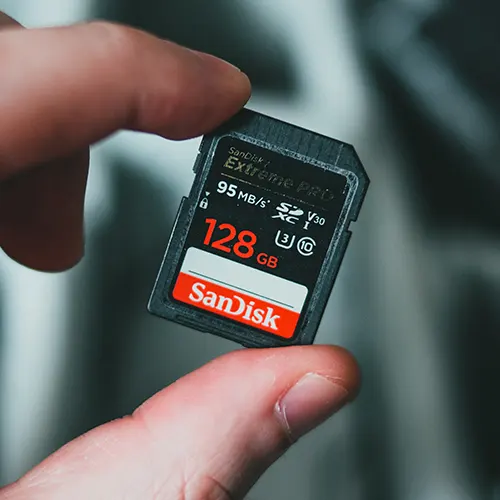
Exploring Memory Card Types: A Comprehensive Guide
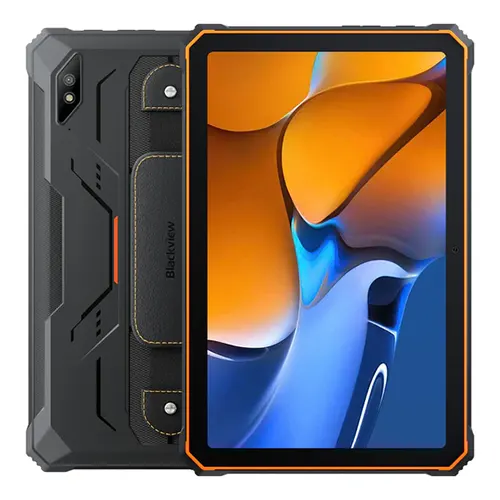
Blackview Tablet Reviews: A Comprehensive Look at Features and Performance
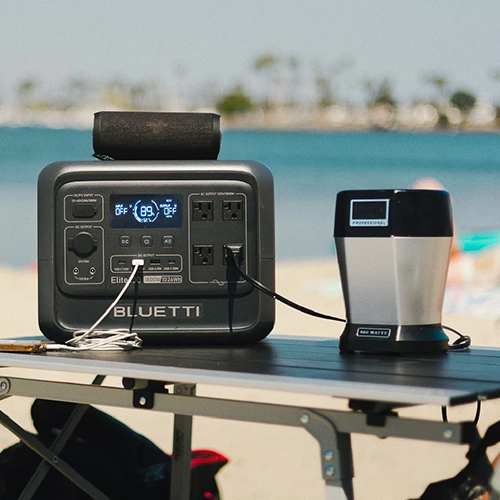
The Best Portable Power Stations & Solar Generators in the UK (2025 Guide)
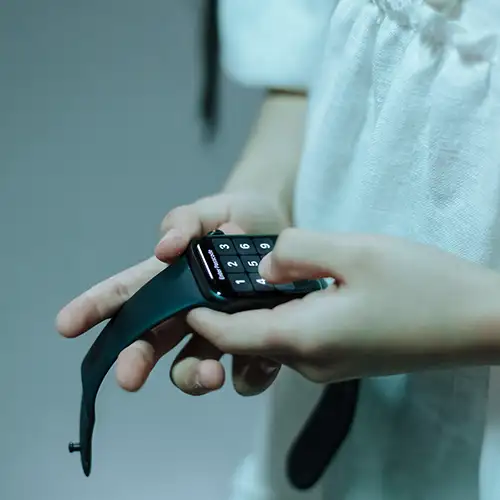
10 Best Smartwatches for Kids
